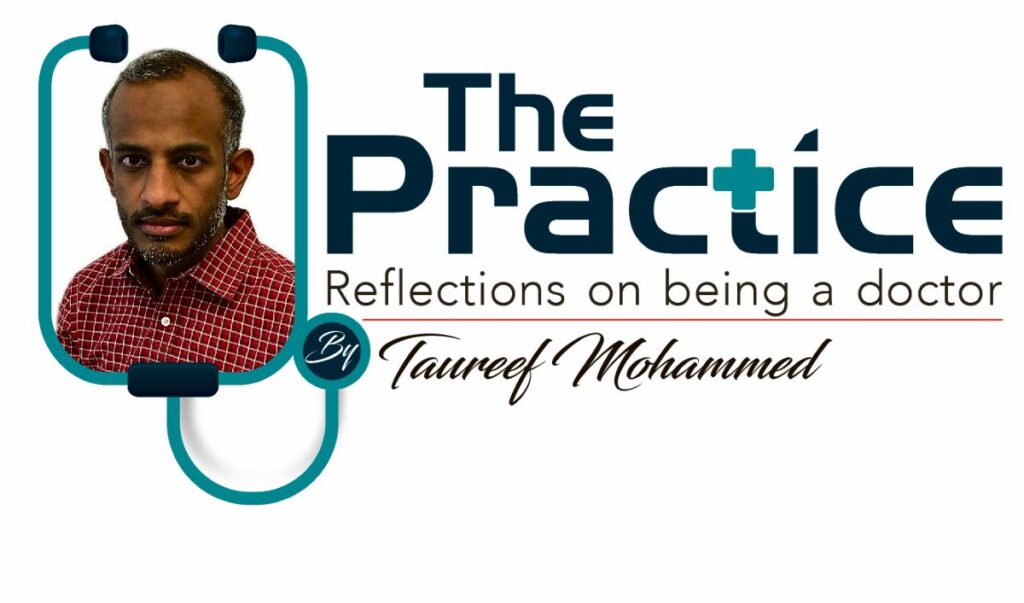Nihilism is good medicine

Taureef Mohammed
FOR A brief moment, I sat and stared at the family and they stared back. There was an awkward pause.
We had just spent over an hour talking about their living with and caring for a loved one with dementia, exploring the issues that had come up so far: agitation, sleeplessness, wandering in subzero temperatures without appropriate wear. I had just finished my generic, copy-and-paste spiel of non-medical advice followed by cautionary – and sceptical – words about the medications used in dementia, trying my best to avoid falling into the pit of nihilism.
They did not seem pleased. Surely they had wasted their time coming here. The appointment was not worth the effort it took to get their father here.
What were they expecting? Were they expecting me to wave a magic wand and reverse the crisis? And if they were, were they wrong to have such high expectations? Perhaps not.
And why was I surprised by their reaction? I was not an oncologist who had triumphantly announced that the cancer had gone away. What did I expect?
Alas, we all had wrong expectations. No wonder the appointment ended in awkward silence.
Some families just don’t get it, I could hear myself saying after they left. I may have said it to the nurse who was working with me that day. As though I got it.
Not quite, as I learned a few days later from another patient’s family.
“Dr Mohammed, I understand. There is nothing you can do. I read everything about this disease (frontotemporal dementia). It is what it is. But I appreciate you taking the time to explain,” the patient’s wife said.
Here was an informed caregiver who understood. When she said there was nothing I could do, I understood what she meant: there was nothing I could do medically to change the course of the disease. And she was right. Unlike, say, a pneumonia, there was no cure for dementia, no way to reverse it. No matter what I suggested or prescribed, the disease was going to progress.
I should have been pleased she had not come here expecting a magic wand – but I wasn’t. Her comments did not settle well with me – they seemed nihilistic.
She had figured me out. She had thanked me after telling me there was nothing I could do. The truth is, I wished I had a magic wand – that didn’t made me uncomfortable. I felt useless. Why am I even doing this?
As a geriatrician, not unlike most doctors, I see many people with incurable diseases. Diabetes, hypertension, COPD, osteoarthritis, the list goes on – all incurable.
When I think about diseases that are curable, I think about infections. Off the top of my head, nothing else comes to mind. At most, we change the course of many diseases, but we don’t cure them.
Generally speaking, cancer is not cured – it goes into remission; autoimmune diseases are controlled, not cured; surgical problems are fixed with surgery, but the underlying cause that led to the surgical problem – for example, an infected foot ulcer caused by diabetes, or a worn-out hip caused by osteoarthritis – may not be curable; a timely stent can save someone who had a heart attack, but it does not cure him – he is at high risk of getting another heart attack.
This all seems straightforward.
Yet the uncomfortable feeling of helplessness and failure creep up on us doctors more often than we expect – and admit. Confronting this feeling is a daily part of a doctor’s life.
But I am not sure we are good at dealing with it. We were never prepared for it. Dressed up in scrubs and white coats that had our names embroidered, we were made to feel confident – not nihilistic.
“You can’t be a nihilist,” a physician once told me.
Jacob Stegenga is a philosopher of science and author of the book Medical Nihilism. I recently listened to a 2019 talk by him on Medical Nihilism and Gentle Medicine. Acknowledging some real “magic bullets” (antibiotics, vaccines, insulin), he argued our confidence in more recent pharmaceutical interventions “ought to be low.” I can’t repeat all his arguments here, but suffice it to say the physician was wrong: it was ok to gently slide into the pit of nihilism.
If it helps one to have the right expectations and confront uncomfortable feelings, nihilism in medicine is good. Perhaps it is even necessary, if we want to avoid awkward silent moments in the exam room.
Taureef Mohammed is a physician from TT working in Canada
E-mail: taureef_im@hotmail.com

Comments
"Nihilism is good medicine"